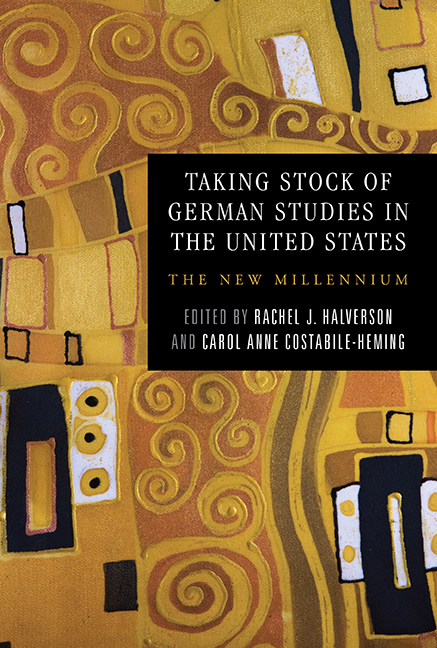2 - Ten Years of “The Making of Modern Europe”— Language, History, and Culture: A Retrospective
Published online by Cambridge University Press: 10 June 2021
Summary
IN 2001, WITH ENCOURAGEMENT from administrators in the College of Arts & Sciences of Washington University in St. Louis, the support of the Department of Germanic Languages and Literatures and the then chairs of History and Romance Languages and Literatures, I founded the Freshman Focus program “Focus on Nationalism and Identity: The Making of Modern Europe.” In so doing, I acted on my belief that beginning college students could benefit from a program of coordinated courses that engaged them on multiple channels. I meant to address young students broadly while pushing them to begin language study in their first semester at a university without a language requirement. I wanted to interest them in intellectual inquiry in the humanities; to pique their curiosity about a geographic area, a historical period, and a particular history; and to excite them about learning foreign languages while there was still time for them to specialize and accomplish something significant in these areas if they wished to do so. I especially hoped to help students see the connection between foreign language learning and the acquisition of cultural knowledge and historical understanding. I aimed not so much to produce foreign language majors—though, as I outline below, that turned out to be a welcome outcome— as to produce foreign language learners and advocates who would use this skill and this knowledge in whatever their primary area of interest turned out to be. I also wanted to cultivate students who would be prepared to take on the challenge of study abroad that requires translingual and transcultural competence. Finally, I meant to provide a hedge against the marginalization of the national language and literature departments at the university.
Due especially to the collaboration of Steven C. Hause, Department of History, and Warren J. Davis, assistant dean, College of Arts and Sciences, “The Making of Modern Europe” lasted ten years at Washington University (fall 2001–summer 2011), ultimately “graduating” 189 students and ending with the retirement of Hause in 2011. Over the course of the decade, the program relied on colleagues in French, German, history, and art history.
- Type
- Chapter
- Information
- Taking Stock of German Studies in the United StatesThe New Millennium, pp. 31 - 51Publisher: Boydell & BrewerPrint publication year: 2015

